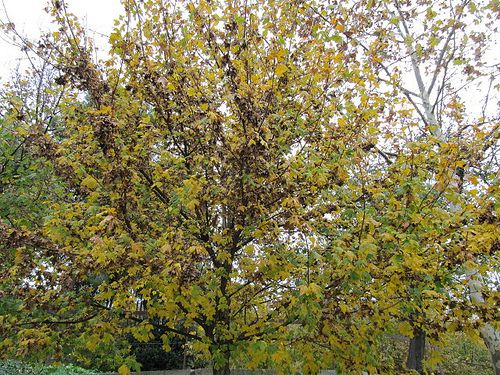-
 Anorexigen
Anorexigen
-
 Pineal gland
Pineal gland
-
 Actomyosin
Actomyosin
-
 Polariton
Polariton
-
 Electrocution
Electrocution
-
 Ligand
Ligand
-
 Screen printing
Screen printing
-
 Global selective value
Global selective value
-
 Whale constellation
Whale constellation
-
 CEV
CEV
-
 MBMS
MBMS
-
 Omnivore
Omnivore
-
 Weeping willow
Weeping willow
-
 Boreal forest
Boreal forest
-
 Cracking
Cracking
-
 Motor neurone
Motor neurone
-
 Pacific rosewood
Pacific rosewood
-
 Ion exchanger
Ion exchanger
-
 Larva
Larva
-
 Titan
Titan
-
 X-15
X-15
-
 Apache
Apache
-
 VAN method
VAN method
-
 RFC
RFC
-
 CGS system
CGS system
-
 Morphogenesis
Morphogenesis
-
 Bullet cluster
Bullet cluster
-
 Nucleus accumbens
Nucleus accumbens
-
 Optical isomers
Optical isomers
-
 Resection
Resection
European Hop hornbeam
The European hop hornbeam is a beautiful small tree that can grow to heights of 15 to 20 m, particularly appreciated in the Mediterranean countries and, in France, on the Riviera and in Corsica.
Names
The European hop hornbeam (Ostrya carpinifolia) is also called the "Old World hop hornbeam". It is a member of the Betulaceae family.

The European hop hornbeam is also called the Old World hop hornbeam. © Stephen Seiberling, Flickr CC by nc-nd 2.0
Botanical description
This species has a rather diffuse crown which rounds with age. Its ash grey bark peels off in plates. Its leaves are deciduous, alternate, slightly pubescent, especially on their lower face, and dentate. These leaves have 12 to 15 pairs of very distinct veins. Its male flowers are hanging catkins, while its female flowers are erect, terminal catkins, forming hanging fruit (which look like hops) when ripe.

Ostrya carpinifolia. © Qsimple, Flickr CC by nc-sa 2.0
Origins
This tree is originally from Mediterranean countries, where it prospers near the Aleppo pine, the maritime pine and the pubescent oak.
Growing conditions
This tree can grow in arid soil, in sunlight or partial shade. It thrives in light, humus rich and even calcareous and dry or moderately humid soil. This is a very hardy species, which can withstand temperatures at least down to -20 °C.
Use
The European hop hornbeam is a very beautiful tree planted individually in parks and gardens or used to create decorative alignments. Its wood is quite strong and hard.
Author: Michel Caron
 Ostrya carpinifolia. © wallygrom, Flickr CC by sa 2.0
Ostrya carpinifolia. © wallygrom, Flickr CC by sa 2.0
Latest
Fill out my online form.



